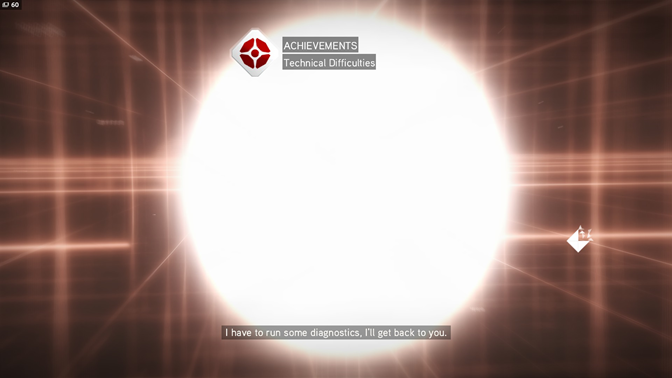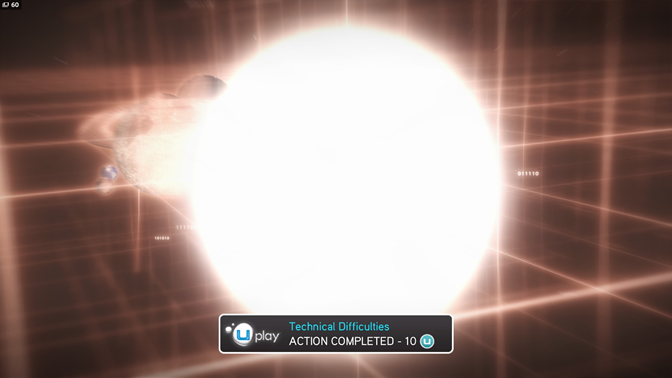As gaming history progresses, it has always become more and more difficult for me to assess what a “good game” is, partially due to my own pre-established biased getting in the way, but moreso because the complexity and variety of video games increases with each year. Assassin’s Creed Brotherhood (as well as the entire Assassin’s Creed series) had me sitting here, scratching my head for just that reason. Is Assassin’s Creed Brotherhood a good game?
If I may digress just a touch, I will say that I was and still am to some degree a huge fan of the original Assassin’s Creed game. Back when I had played it for the first time, I was completely blown away–never before had I played a game with such a massive draw distance where not only was everything explorable, but where every building had been hand built so that it was scalable in a (somewhat) realistic manner. Buildings and characters looked good, the setting was not an overdone one, and the story was interesting. Add to that the controls were unique, smooth, and yet complex enough to perform some pretty exciting parkour moves. I was immediately hooked.
My memories of the original AC still live on fondly in my memory to this day.
Two games later and I’m sitting here playing Brotherhood with a sickening sensation building up in my stomach, all the while I’m asking myself bewilderedly, “Where did it all go wrong?” I believe I have the answer, but it is not a simple one, and as I must address the question with some tact, I beg your patience as I assess a few different concepts.
First, there is the concept of a mechanical transition from one game to another. I’ll be brief, but usually when producing games in a series, the mechanics of a new game should be relatable enough to feel like a continuation of the previous games, but also possessing signs of growth and improvement. Super Mario 1 and America’s Super Mario 2 are perfect examples of this. In SM2, you run with the B button and jump with the A button just like before, only now you need to learn how to pull turnips up from the ground, enter doors and clay jars, pick up weird objects and utilize them, as well as learning the difference between the 4 playable characters. SM2 is similar enough to SM1 to not be a foreign concept, but introduces new growth to the game that causes the players to think and grow themselves in the way that they interact with the game. Right from the beginning of Brotherhood I know exactly how to play the game, because the controls and mechanics are exactly the same as they’ve been for the last two games. Nothing is new, nothing will be new (this I know as I’ve played Revelations, the next game in the series) and the player will interact with the world in the exact same way they did in AC1. The difference is, that now instead of somewhat having your hand held in what you’re allowed to do, you *really* get your hand held in what you’re allowed to do. Fun.
Brotherhood is less a game and more of an interactive experience where you are meant to believe that you are freely playing the role of a character, but the moment you move a couple feet away from where the game wants you to be, it jerks hard on the invisible chain around your neck and forces you to follow the rails that were laid for you. Near the beginning of the game, you ride a horse with Ezio’s uncle. In what was a comical sight, I moved what must have been relatively 10 feet away from the uncle and the game desynced me because I wasn’t walking along beside him like it cinematically wanted. After meeting with Ezio’s sister, you’re left to wander around freely to discover the estate–except you’re not. You’re demanded to go to three completely random locations and talk to three random people to perform three random acts that are completely pointless. I believe that they are meant to be a sort of tutorial, but do I really need to do a quest to figure out that pushing “B” gets me on a horse? Do I need to do a quest where I learn that pushing B lets me pick up boxes? What the heck?
And sex. Ooooh, the sex. The first female character I met in the game that wasn’t my sister, implied about three different ways how she would provide Ezio with sexual favors because he carried a box of flowers for her–all the while Ezio is soaking it in, playing the role of “put yourself in my shoes, adolescent boys and play out my fantasies.” Not more than 10 minutes later, there is sex scene between Ezio and a different woman than the flower lady. Cleavage flops about everywhere and butts are taut on every female character except Ezio’s mother. Is sex inherently bad? No, of course not. Is an attractive female body wrong? Not at all. My issue stems from the reason for its use–which I know is only there to titillate the heterosexual male gaze and nothing more. I must stress again, that sexualized characters are not inherently bad–as long as there is a purpose beyond cheaply appealing to the chemical nature of a segregated portion of the gaming community. My wife and I love playing a game–it’s called “White man with stubble.” If the character of a game is a white man with stubble, then 9 times out of 10, the title is a shallow pandering to a male power fantasy, disguised as a game and cashing in on the straight desperate man-child. Brotherhood more or less falls into this category.
Classic victim of White Man with Stubble Syndrome:
The pandering doesn’t really stop there either, as the game is filled with achievements for the most mundane of things. You literally get an achievement for watching the opening cinematic. Read that again. The game deems sitting on your butt and watching a cutscene, worthy of award. Is that how little faith they have in their own product? That they have to bribe the player into continuing to play their game through the use of cheap stickers for the most basic of tasks? What’s even better (or worse) is that every achievement you get, you gets displayed twice–once for Ubisoft’s joke-of-a-Steam-ripoff called Uplay, and once for what I assume is the actual game. Double gimmick points!

Now, with all this being said, to say that Brotherhood (and the AC series) is unsuccessful would be ridiculous. Ubisoft has turned the AC series into a powerhouse franchise that *has* to be raking in the dough. Do I fault them for that? No, not at all. It is simply that, just as each person has beliefs in what a video game should be, I as an individual also have beliefs in what a good game should be, and the AC series beyond 1 is not it. Instead of expanding their universe, mechanics, gameplay and ideas, it decided to focus more on a production of rapid-fire games in quick succession. Instead of growing a new genre of gaming that they nearly created single-handedly, they squandered it in order to play it safe. Instead of relying on the power of the entertainment value that they provide to their players as a catalyst for future game purchases, they instead rely on cheap gimmicks, sexual attraction, and hand-holding rail-roading so that they can appeal to the lowest common denominator. A game needs consequences, adventure, risk/reward and growth–both of the player-character and the player themself. Anything less is a manufactured product wearing the mantle of a good time.
I’m glad Ubisoft is releasing an AC movie. I think that’s where this kind product belongs (similar to my Kane and Lynch review). It belongs in a medium where the user is *expected* to sit around and do nothing. But to use video games as a medium into tricking the players that they are involved in something amazing, when truly all they’re doing is stagnating their own growth and imagination? No thanks. I’ve got indie games in my library that were created with a fraction of the budget that Brotherhood was made with that are more worth my time.



